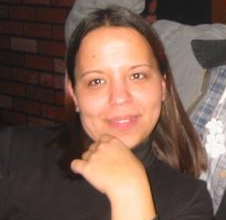Jammie Thomas suffers pretrial setback in copyright case
Federal judge has denied a motion made by defendant's lawyers to suppress evidence gathered by MediaSentry. Judge also won't allow her to argue fair use.

A federal judge dealt a serious blow to Jammie Thomas' defense on Thursday.
U.S. District Court Judge Michael Davis will allow evidence gathered by MediaSentry, a security firm that once investigated illegal file sharing on behalf of the music industry, to be heard by a jury in Thomas' retrial, scheduled for Monday. Thomas is the first person sued by the recording industry for copyright violations to have her case argued before a jury. She was found guilty in October 2007 of illegally sharing 24 digital-music files. The judge in the case declared a mistrial after acknowledging he erred in giving jury instructions.
Her new attorneys recently accused MediaSentry of violating federal and Minnesota wiretapping statutes and asked the judge to throw out its findings.
The decision is significant for the music industry. Had the judge granted Thomas' motion, "it would have been nearly impossible" for the Recording Industry Association of America to prevail, according to Ben Sheffner, a former entertainment industry attorney and copyright expert.
Davis also won't let Thomas raise a fair-use defense because she waited too long to make the argument.
"This litigation has gone on for years, yet Plaintiffs had no inkling of this defense until the eve of trial," Davis wrote in his decision. "The record in this case, with which this Court is intimately familiar, gave no hint that a fair use defense would be forthcoming. It would be highly prejudicial to Plaintiffs to allow Defendant to assert this new affirmative defense on the eve of retrial."
What all this means is that Thomas' legal team is running out of ways to prove she's innocent. At her first trial, her defense offered little more than her telling the jury she was innocent of illegally sharing music.
That didn't work out so well. One member of the jury called her a liar following the trial.

